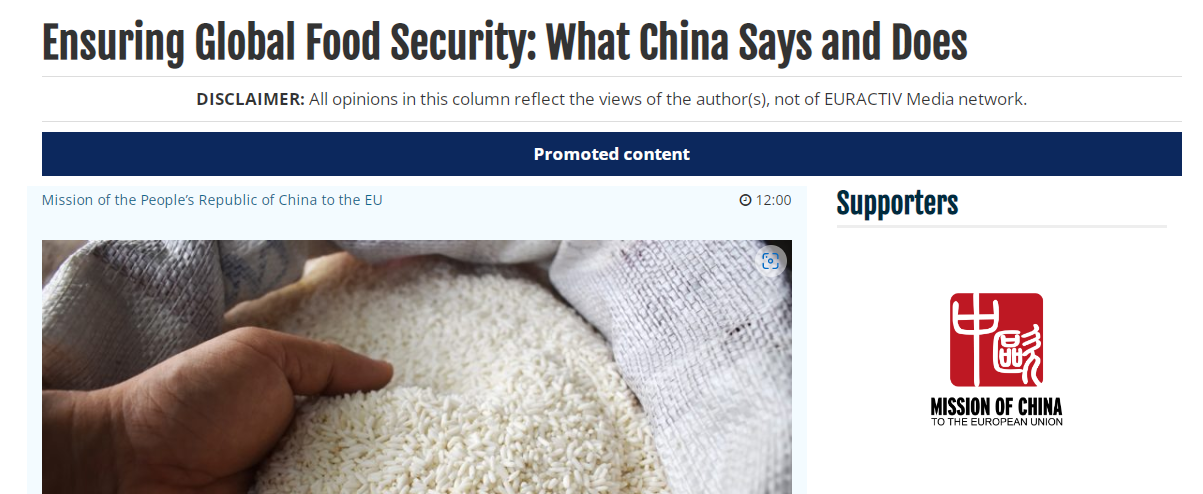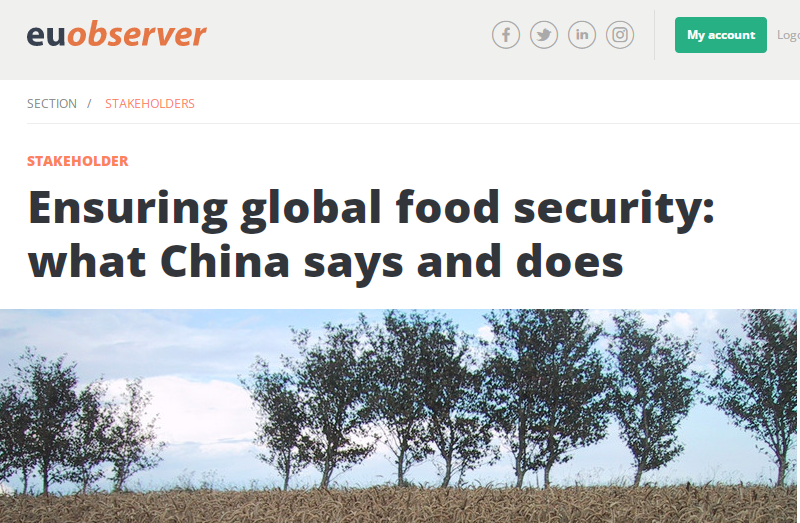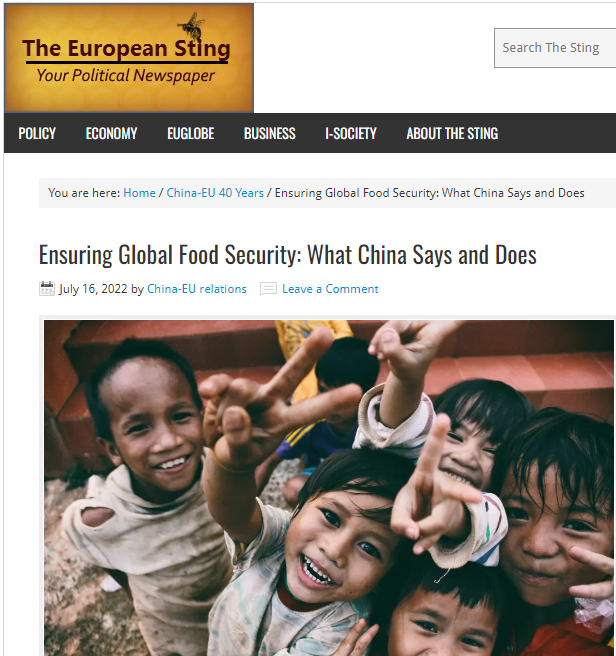
Hit by intense heat, it is reported that some European countries will see their soft-wheat output drop by 7%, lower than their five-year average, another bad news for the already strained global food supply.
But the problem did not pop up just this summer. In recent years, the consequences of the climate crisis, compounded by the COVID-19 pandemic and the Russia-Ukraine conflict, have significantly driven up food prices, tipping millions of people into hunger, especially in developing countries.
A recent UN report paints a dire picture. It shows the number of people affected by hunger across the world has risen to as many as 828 million in 2021, an increase of about 46 million since 2020 and 150 million since the outbreak of the COVID-19 pandemic. "The world is moving in the wrong direction on the SDG targets to end hunger, food insecurity, and all forms of malnutrition," warns the report, projecting that 8% of the world's population will still be affected by hunger in 2030.

Long haunted by hunger in its history, China has this saying that food is the primary need of the people, who are the foundation of the country. Since the founding of the People’s Republic of China in 1949, the Chinese government has always put food security as its top priority.
After decades of hard work, China's grain output reached a record of 682 million tons in 2021, the seventh consecutive year that the country's grain production exceeded 650 million tons, making it the world's largest grain producer and the third largest grain exporter. Currently, the country is able to produce 95% of its domestic grain consumption. It's even more remarkable that China managed to produce about one-fourth of the world's food and feed nearly one-fifth of the world's population with less than 9% of the world's arable land.
Such achievements in themselves are China’s contribution to world food security, not to mention the inspiration it provides to other developing countries in this process. However, some media reports these days attribute China’s self-sufficiency of food to grain hoarding and further accuse China of disrupting the global food market. These are nothing but lies made out of ill intentions.
China, as a matter of fact, has been doing its best to help build a world free of hunger, though it remains a developing country with its own food problems. President Xi Jinping made food security one of the eight priority areas of cooperation in the Global Development Initiative, and in his recent speech at the High-level Dialogue on Global Development, he further announced that China would allocate more resources for global development cooperation, work with all sides to deepen global cooperation on poverty reduction and eradication as well as to build capacity for food production and supply.
On the multilateral front, China has continuously deepened international cooperation on food supply. It has supported the WPF in setting up a global humanitarian response depot and hub in China and established and sponsored the China-FAO South-South Cooperation Trust Fund. In cooperation with the FAO and the WFP, China has implemented more than 40 cooperation projects under the Fund. China has established agricultural cooperation zones with other developing countries, carried out exchanges on agricultural know-how with more than 140 countries and regions, and promoted more than 1,000 agricultural technologies in developing countries, driving up the crop yield in the project areas from 30 percent to 60 percent on average and benefiting more than 1.5 million small-scale farmers.
Chinese hybrid rice has been planted in dozens of countries and regions in Asia, Africa and the Americas, with an annual planting area of eight million hectares and an average yield per hectare two tons higher than that of fine local varieties. Since the beginning of this year, China has provided more than 15,000 tons of emergency humanitarian food aid to developing countries in need, which has been widely praised by the international community.
At the recent G20 Foreign Ministers Meeting, State Councilor and Foreign Minister Wang Yi proposed China’s eight-point initiative on global food security, contributing China’s wisdom to solving the problem. China’s initiative includes supporting the central role of the United Nations in coordination; not imposing export restriction on humanitarian food purchases by the WFP; facilitating the entry of Russian, Ukrainian and Belarusian agricultural products and inputs into the international market; releasing the export potential by major food-producing and net-exporting countries, reducing trade and technical barriers, and curbing the use of food as energy resources to ease the food supply tension in the market; emergency measures taken by countries for food trade should be short-term, transparent, targeted and appropriate, and conform to the WTO rules; supporting the Consultative Group on International Agricultural Research and the cooperation on agricultural science and technology innovation among countries, and reduce restrictions on high-tech exchange; reducing food loss and waste; and helping developing countries enhance their capacity for food production, storage and loss reduction in terms of capital, technology, market and others.
Together, we can make a difference. The graver the challenges are, the more countries need to put aside their differences and work side by side. In a bid to achieve the SDGs, countries must work with one mind and support each other. Furthermore, there is no time to waste and it is important to increase investment and take swift action now.
China sincerely hopes that Russia and Ukraine will agree on a ceasefire and cessation of hostilities as soon as possible and restore peace through dialogue and consultation. It is also hoped that developed countries will offer more support to developing countries. China stands ready to further strengthen cooperation with all parties and make unremitting efforts to make due contributions in safeguarding world food security.

